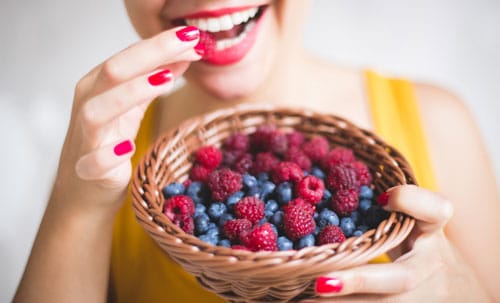A recent survey found that Americans fear Alzheimer’s more than any other illness, even cancer.[1]
We find it so terrifying because when Alzheimer’s robs us of our ability to think and remember, it essentially takes away who we are.
It is a horrible kind of living death. But there’s another reason Alzheimer’s is scary…
Consider this list of the top eight medical causes of death in the U.S….
- Heart disease
- Cancer
- Respiratory illness
- Stroke
- Alzheimer’s disease
- Diabetes
- Flu/pneumonia
- Kidney disease
Alzheimer’s is the only top killer for which there are no mainstream treatments. Doctors have nothing that can cure it, prevent it, or even slow it down.[2] [3] [4]
We are making progress against the other major killers. For example, heart disease deaths have gone down 14% since 2000.[5]
Alzheimer’s deaths, meanwhile, have increased during the same period by 89%.[6]
As a result, Alzheimer’s—not heart disease or cancer—is now the leading killer of people over 65.[7]
Now, new research shows there is hope. And it comes not in the form of a drug, but in food.
Researchers at Tufts University’s Human Nutrition Research Center on Aging analyzed the intake of two plant compounds in the diets of 2,801 people for almost 20 years. The two compounds are flavonols and anthocyanins. They are part of a family of plant nutrients called flavonoids. Flavonoids are responsible for the vivid colors of fruits and vegetables. They are also powerful antioxidants.[8]
The researchers found that subjects who ate low amounts of flavonols had twice the risk of getting Alzheimer’s-related dementia. People who had low anthocyanin intake had four times the risk.
Dr. Paul Jacques was the senior study author. He pointed out that with “no effective drugs currently available for the treatment of Alzheimer’s,” it’s important to look at diet for preventing the disease.[9]
“The risk of dementia really starts to increase over age 70,” Dr. Jacques said. “The take-home message is, when you are approaching 50 or just beyond, you should start thinking about a (more healthful) diet if you haven’t already.”
5 Top Sources of Anthocyanins
The study authors said you don’t need to make a major change to your diet to slash your Alzheimer’s risk. Just eat a few ounces of any of these anthocyanin-rich foods two or three times a week:
- Blackberries
- Blueberries
- Currants
- Red Cabbage
- Black plums
Anthocyanins are also abundant in red grapes, red raspberries, and pomegranates… really any fruits and vegetables with deep purple, red, or blue hues.
Increase your levels of the vital compound by blending a handful of dark berries into a fruit smoothie or yogurt. Add red cabbage to salads.
You can also get anthocyanins in supplement form. Look for blueberry, tart cherry, and other dark berry extracts online and in health food stores.
Drug companies have spent decades and billions of dollars searching for an effective way to prevent Alzheimer’s. They have failed miserably. It turns out that Mother Nature succeeded long ago.
Editor’s Note: Where are my keys? Why did I come into this room? What is my nephew’s name? Read our monthly journal Independent Healing to learn if these mental lapses are normal or signs of Alzheimer’s. And discover how to get back your youthful memory. Subscribe HERE.
Related Articles
These 10 Foods Cut Your Alzheimer’s Risk in Half
If Alzheimer’s Runs in Your Family, You Need to Do This
One Supplement May Hold the Key to Preventing Alzheimer’s
Like this Article? Forward this article here or Share on Facebook.
[1]https://journalstar.com/niche/star-city-health/medical/survey-alzheimer-s-most-feared-disease-in-america/article_77d1845a-ff89-5af1-82ba-a69bfd72cc8d.html
[2]https://www.medicalnewstoday.com/articles/282929.php#kidney-disease
[3]https://www.medicalnewstoday.com/articles/282929.php#cancer
[4]https://www.usagainstalzheimers.org/learn/alzheimers-crisis
[5]https://www.usagainstalzheimers.org/sites/default/files/2018-06/Hiding_in_Plain_Sight_FNL.pdf
[6]https://onlinelibrary.wiley.com/doi/full/10.3322/canjclin.50.1.7
[7]https://www.mdedge.com/neurology/article/81391/alzheimers-cognition/alzheimers-disease-mortality-rate-higher-reported
[8]Flavonoids are compounds found in plants. They are powerful antioxidants. They are known to improve blood vessel function and are anti-inflammatory.
[9]https://www.medicalnewstoday.com/articles/low-flavonoid-intake-associated-with-alzheimers-risk#An-apple-a-day

